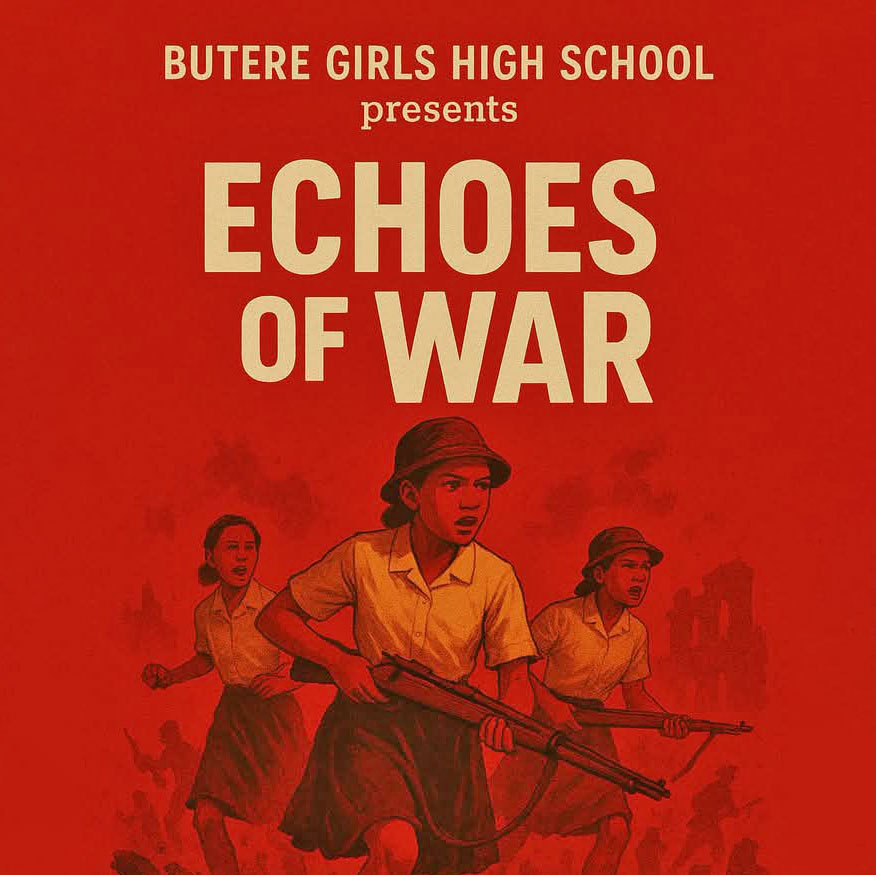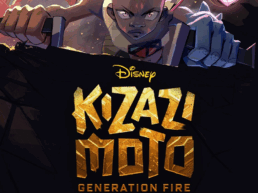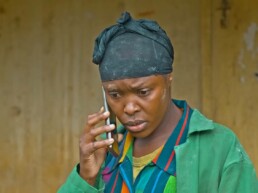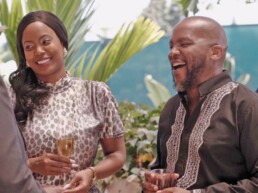The secondary school music curriculum under the 8-4-4 system made traditional Kenyan music a core part of the syllabus through all four years. While not all students took music throughout all four years, those who did learned about music’s cultural significance and the practices of various communities across the country. Among these, the musical traditions of Western Kenya were especially prominent in textbooks. The instruments of the Isukha and the Teso were numerous and varied in material and style of play, made for complex melodies. The pictures of the performers in the books showed elaborate costumes and ensembles. Still, for many students, the only place to witness something as specific as a traditional Idakho wedding song, performed with its full set of instruments, was not in class, but on stage at the National Drama and Film Festivals.
Once a year (twice if you are a debate/choral verse kid or the cooler variant of choir/drama club kid) the country holds drama and music festivals where all schools are welcome to enter and compete in various artistic categories. With the support of teachers and trainers, the students battle it out for a coveted place at the national level. The drama and music festivals act as a sort of cultural counterbalance. Here, students and teachers can break free from the narrow confines of the curriculum and instead spotlight lesser-heard languages, dances, and musical styles from across the country. The festivals are more than just creative outlets. They are also cultural archives, where oral histories, traditional instruments, and indigenous storytelling techniques are given space to breathe and evolve.
The nationals are an extravaganza. For a whole week, scores of school buses clog the host institution’s field, rooms to rehearse in are fought over, teachers engage in Machiavelli-level politics over who performs when, lifelong friendships are made and careers are born.
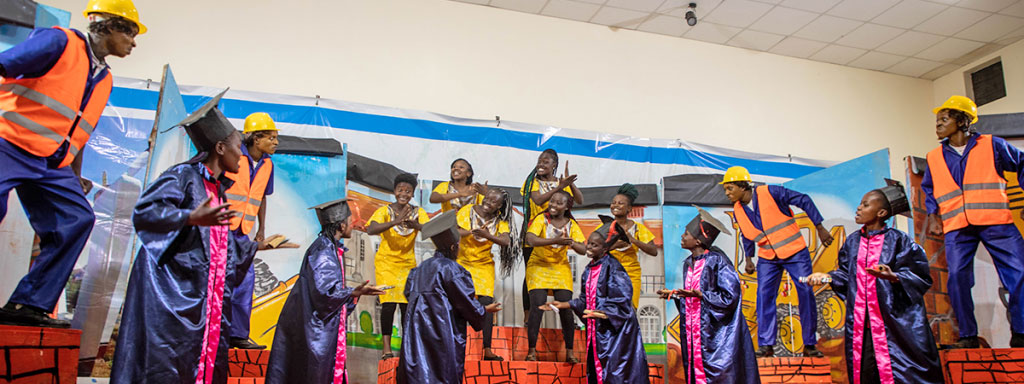
At the Nationals
The place to be is the halls. It is going to be a crush but you want to get right up front or find a nice high vantage point in the back. You want to be there when Chavakali High get on stage. You do not want to miss Bunyore girls or Friends School Kamusinga. It is not just the shoulders and drums, although those are very cool too. It is the sound, the energy, the presence. And yes, this is not just some unnameable magic passed down through the centuries. It is also the result of consistent investment by the schools – setting aside budgets, finding trainers and coaches, providing clubs with the time and resources needed to become champions.
We can assume that this is how the Butere Girls drama club, performing the play Echoes of War qualified for the 2025 National Drama Festival. A distinguished playwright wrote and directed the play. He also happens to be a politician who has found himself amongst the ever growing pile of key players who have fallen out of favour with the top brass of the day’s Kenya Kwanza (KK) ruling coalition. Officials attempted to disqualify the play earlier in the competition but it still went on to the nationals. When it was disqualified from the national contest, the school went to court and a judge ruled in the school’s favour. Ultimately, the play was not performed at the national stage as the girls refused to perform without their director. Teargas ensued.
Up until the court’s ruling, the events mirrored those of Shackles of Doom, a 2013 Butere Girls play banned from the nationals for allegedly failing to “promote national cohesion.” The ban, and the successful legal challenge that followed, catapulted its playwright, Cleophas Malala, into the national spotlight and arguably launched his political career. While Shackles of Doom and Echoes of War differ in subject matter, both plays interrogate government corruption, impunity, and human rights violations.
So why did the staging of Echoes of War end in teargas, arbitrary arrests, and disciplinary action against the school’s principal?
Malala’s involvement may have made the difference. A striking number of drama festival plays explore systemic injustice, stories of state violence, class struggle, and historical trauma. These themes are not new, nor are they outliers. What sets Echoes of War apart is that it was bankrolled and written by a former secretary-general of the president’s own party, now turned critic.
The Education CS even questioned why someone unaffiliated with the school would write the play, missing, perhaps willfully, the reality that most teachers who in normal circumstances would have helmed this job, are drowning in schemes of work, exam papers, and endless grading with meagre resources. His statement urging politicians not to “use students to settle political scores” seemed less like a warning and more like an unintended admission: that Malala’s political baggage, not the play’s content, was the real threat.
Why are politicians so closely involved with schools?
Once we step back and take a broader view of the problem, sponsoring a drama club seems like small potatoes. From donating brand new buses to building entire class blocks, politicians love spending money in schools. Not all schools and certainly not in any way that might lead to lasting, meaningful improvement for their constituents but this is not new. Depending on how you look at it, public schools have been used to execute political agendas since the first ones were established by British colonialists.
Formal western education came to Kenya along with Christian missionaries. Once British rule was established, they started to build schools. Eventually, they got around to building some for Africans. These early schools worked to unmoor young people from their communities and cultural roots, training them in the ways of the coloniser so that they would help reinforce the colonial project. This is why so many of our founding statesmen are alumni of that school near Thogoto.
If you did not read Thiong’o’s The River Between at school, you’ve certainly perused Achebe’s Things Fall Apart. Both are fictional accounts of this transitional period where missionary schools were coming up and starting to recruit African converts. Early graduates went off to universities abroad or took government positions.
Enter President Moi. The teacher, the farmer, the force behind the massive expansion in school infrastructure and policies that helped tens of thousands to access tertiary education. He did not just build new schools all over the country including colleges to train the teachers who would later staff those schools, he also started a nationwide free milk program. Music and drama festivals? Him too. If you ask those who grew up in that generation they might tell you a story of how hearing Moi was visiting your school was as close as they could ever get to an American kid’s excitement about a visit from Santa Claus. He’d arrive with trucks full of brand new bata shoes, enough grain and flour to last you months and always, always, milk. Were the bags of flour marked as disaster relief meant for those affected by the devastating 1984/5 famine? Yes, but just drink your milk.
The Beginning of NG-CDF
After Moi, nyayo-esque generosity was formalised by President Kibaki with the creation of NG CDF or Constituency Development Fund. Though declared unlawful several times over, MPs continue to receive millions of taxpayer shillings over which they have full discretionary control. Given free reign, most seem to have chosen to focus exclusively on fraud-friendly schemes and re-election efforts. All while the country’s education system unravels. The TSC claims it cannot hire teachers for lack of funds and schools cannot implement the new CBC/CBE curriculum for the same reason. Children are packed into classes and dorms, receiving far below the most basic standard of education and care. With MPs and elected officials across the board happy to exchange a million or more to sink a borehole in exchange for being the guest of honor at a packed school event, quid pro quo arrangements are inevitable. While not inventing the practice of putting money in schools to serve politics, the astronomical amounts presently at play take it from passive electioneering to something else entirely.
Cleophas Malala
Granted, Malala never got his hands on that sweet CDF money. He was, however, still an MCA and then a senator so he still enjoyed years of amassing wealth and leveraging it for political gains. His and other politicians’ vested interests in schools should be interrogated but zeroing in on a school play ignores the larger, more urgent issues.
The simple fact of Malala being the voice behind the play could have been enough to elicit the state’s response. Perhaps the difference between 2013 and 2025 comes down to different strokes for different folks. What is cool to one co-accused at the ICC may be unacceptable to another co-accused at the ICC.
Still, it could have been the subject matter of the play that did it. We know that vocalized dissent is a real problem for William Ruto. The children at the festival in Nakuru are not the first to feel the sting of Ruto’s teargas as retaliation for demanding their rights.
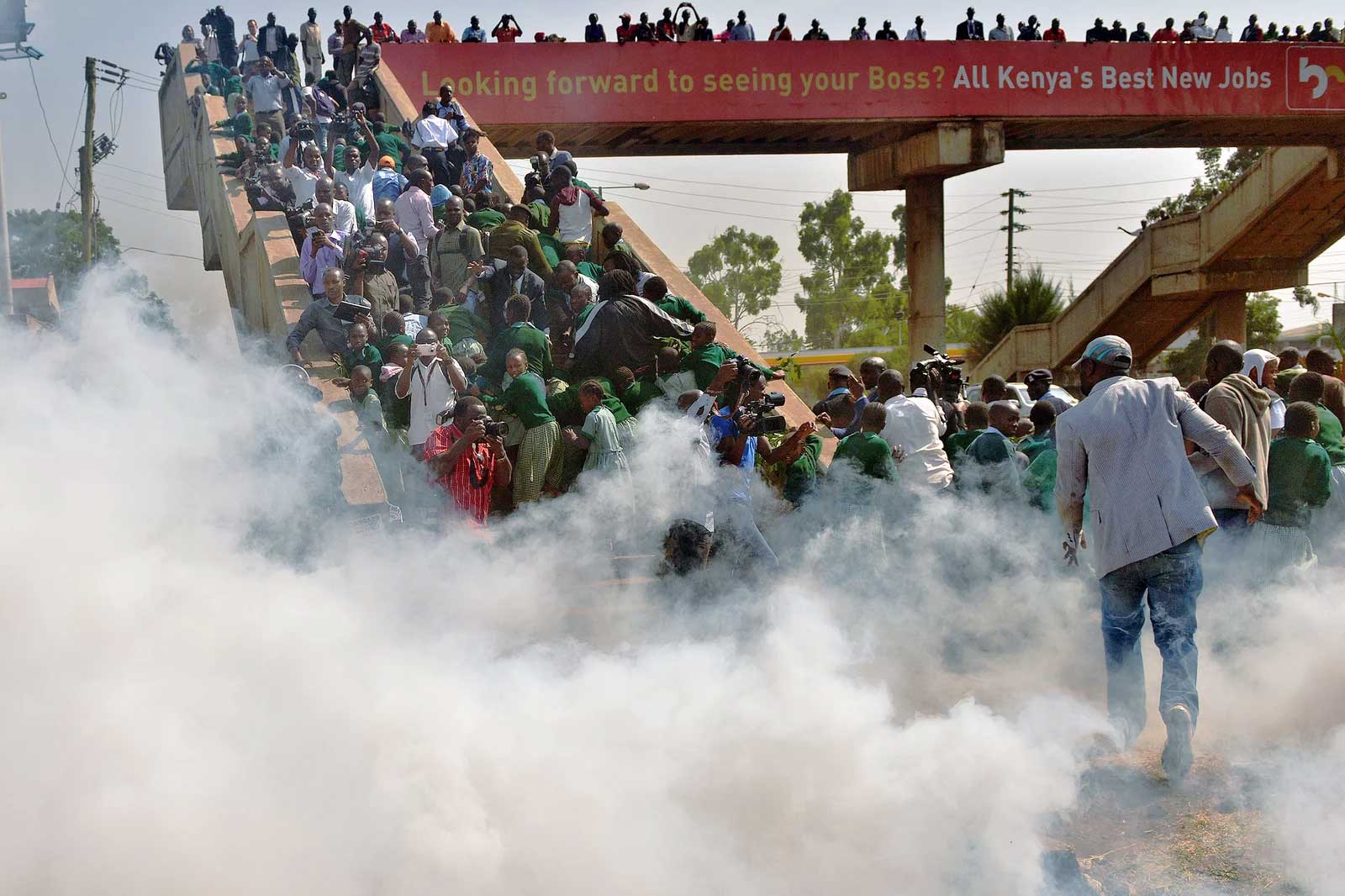
In Echoes of War, a series of old tweets that were critical of the government lead to the forced disappearance of the main character. That’s the plot. Is that really enough to warrant armed police officers barricading the entrance to a hall just to keep people from seeing a play where one of the characters is apparently pregnant with hope but also…a bomb? Well, worse has been done for less.
Consider how many officials, keen to prove loyalty or avoid blame, might have heard about the play and rushed to “fix it.” What unfolded feels less like a coordinated government directive and more like a farcical display of overcompensation. The kind of security theatre only a true sycophant could choreograph.
- Arrest the playwright.
- Intimidate the school.
- Let the girls perform, but for an empty hall. And if anyone dares to walk in?
- Deploy police.
Awkward pregnancy metaphors aside, comparisons to I Will Marry When I Want, Ngũgĩ wa Thiong’o’s banned 1977 play, feel apt. Ngũgĩ was arrested, tortured, and eventually exiled. Censorship is a tool of tyranny. It isn’t just about silencing art, it’s about preserving control. Control over what stories are told, what truths are heard, what futures are imagined. Tyranny doesn’t begin with mass violence; it starts with quiet disappearances, absurd bans, and crackdowns no one resists because the stakes seem too small. Who cares if a critic vanishes? Or if a school play gets canceled? These are the kinds of seemingly minor incursions that chip away at the integrity of public institutions. If left unchallenged, they quietly redraw the boundaries of who gets to participate in shaping society, and who doesn’t.
We’ve seen how this playbook unfolds. In Tanzania, the government has taken significant steps to suppress dissent and control information. Opposition leader Tundu Lissu, who survived an assassination attempt in 2017, was recently charged with treason after calling for electoral reforms. Subsequently, his party, CHADEMA, was disqualified from participating in the upcoming elections, effectively silencing a major political voice. Simultaneously, over 100,000 Indigenous Maasai people are facing eviction from the Ngorongoro Conservation Area under the guise of conservation efforts. These actions not only displace communities but also erase cultural narratives that challenge the state’s preferred storyline.
Censorship, displacement, and criminalization rarely arrive all at once. They creep in, one justification at a time, until fear becomes normal and silence becomes survival. What starts with silencing a school play can end with rewriting entire realities.
Backsliding to Tyranny
How do we go from a banned school play, written by a washed up politician, to the return of one party rule and political prisoners? No one knows exactly. The slide is different every time. That’s why most democracies enshrine fundamental rights, to hold the line against tyranny in all its disguises.
And yet, there are always those watching. Those asking how, when, and why we fumble.
People who dedicate their lives to understanding the individual, systemic, and cultural forces that shape how we live, and how we fall apart. They interrogate power and expose contradictions. They are artists. They are thinkers. They are witnesses who refuse to let silence settle. Through music, theatre, film, books, satire, and dance, they argue, they ridicule, they provide catharsis and hope, they hold collective memory and allow us to know each other better. These people offer not just critique but catharsis, memory, resistance, and hope. They remind us who we are, and what we must protect.
It’s the journalist who won’t stop knocking because they know the truth is inside. The producer who digs up the sonic bones of a forgotten heritage and makes it sing again. The photographer who gives the street child the same dignity they’d give a lion on a National Geographic cover. And sometimes, it’s a teenager in a school uniform, walking off a stage they were never really allowed to stand on. Because theatre needs an audience. But when that’s taken away, the refusal to perform becomes the message.
And so:
We wore our hearts upon our sleeves,
The curtains rose, but silence stayed,
Our stories spilled, unheard, unseen.
Kambura Matiri
Joy is a Nairobi native, parentheses enthusiast, and writer at large.


